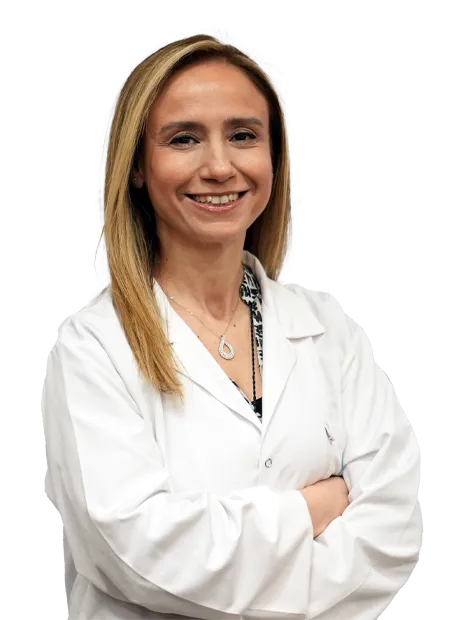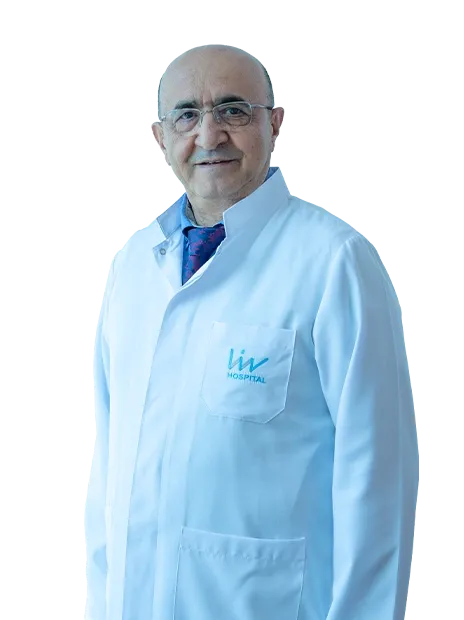Cancer Screening - Early Detection for Better Outcomes | Liv Hospital
-
Understanding Cancer Screening: Why Early Detection Matters
-
Common Cancer Screening Tests Explained
-
Cancer Screening Guidelines
-
The Cancer Screening Process: What to Expect
-
Turkey: A Leading Destination for Advanced Medical Care
-
Advanced Cancer Screening at Liv Hospital
-
Addressing Concerns About Cancer Screening
Understanding Cancer Screening: Why Early Detection Matters
What Are Cancer Screening Tests?
Cancer screening tests are medical evaluations performed on individuals who show no symptoms, aiming to detect cancer at an early stage when it is most treatable. These tests play a pivotal role in improving survival rates and reducing the severity of cancer-related treatments. At Liv Hospital, we utilize a wide array of modern diagnostic tools to detect abnormalities before they turn into advanced disease.
The Importance of Finding Cancer Early
Cancers diagnosed at earlier stages are significantly more treatable and often curable. For example, the 5-year survival rate for localized breast cancer is nearly 99%, whereas it drops dramatically for late-stage diagnoses. Early detection through routine cancer screenings allows for minimally invasive treatments, shorter recovery times, and better quality of life.
Who Should Get Screened for Cancer? General Guidelines
Factors such as age, gender, family history, and lifestyle play a critical role in screening decisions. General guidelines suggest:
Women aged 40+: Mammograms every 1–2 years
Men aged 50+: PSA testing for prostate cancer
Adults aged 45+: Colonoscopy or stool-based tests for colorectal cancer
Smokers aged 50–80: Annual low-dose CT for lung cancer
Our expert medical oncology team provides personalized assessments to create appropriate screening schedules.

Common Cancer Screening Tests Explained
Screening for Breast Cancer
Mammograms continue to be the benchmark for breast cancer screening. Women over 40 are advised to undergo mammography annually or biennially. For denser breast tissues, 4D breast ultrasound technology can provide enhanced visualization.
Screening for Cervical Cancer
Cervical cancer can be effectively screened using Pap smears and HPV tests. Regular screenings beginning at age 21 significantly reduce cervical cancer incidence.
Screening for Colorectal Cancer
Screening begins at age 45 with options including colonoscopy, sigmoidoscopy, or stool tests like FIT or FOBT. These tests can detect polyps before they turn cancerous.
Screening for Lung Cancer
High-risk individuals (e.g., long-term smokers aged 50–80) should consider annual low-dose CT scans.
Screening for Prostate Cancer
The PSA blood test and digital rectal exam (DRE) are commonly used. Men over 50, or earlier with family history, should consult their doctor.
Other Potential Screenings
Screening for skin, ovarian, or oral cancers may be advised based on specific risk factors.
Cancer Screening Guidelines
Age-Specific Recommendations
20s-30s: Cervical cancer screening (women)
40s: Add mammograms, baseline skin checks
50+: Colorectal, prostate, and lung cancer screenings
Risk Factor Considerations
Genetics, lifestyle, and personal medical history affect when and how often screening should occur. At Liv Hospital, we offer genetic risk assessment for cancer.
Understanding ACS and Other Screening Guidelines
We follow international standards such as those set by the American Cancer Society (ACS) and adapt them to your unique health profile.
The Cancer Screening Process: What to Expect
Preparing for Your Screening Test
Some tests require fasting or avoiding certain medications. Your care team will provide detailed instructions.
During the Screening Procedure
Most screenings are non-invasive and quick. Our team ensures your comfort and dignity throughout the process.
Understanding Your Results and Next Steps
Results are discussed promptly. If any abnormalities are found, we guide you through further diagnostic steps, such as PET-CT scans for cancer detection.
Turkey: A Leading Destination for Advanced Medical Care
Why International Patients Choose Turkey for Healthcare
Turkey has become a hub for medical tourism due to its high standards, affordable pricing, and personalized care.
Quality Standards and Accreditations in Turkish Hospitals
Liv Hospital is JCI-accredited and adheres to global best practices in cancer screening and treatment.

Advanced Cancer Screening at Liv Hospital
Utilizing Cutting-Edge Diagnostic Technology
We use MRI, 4D Ultrasound, low-dose CT, PET-CT, and more to detect cancer early.
Our Expert Team of Oncologists and Radiologists
Our multidisciplinary approach includes surgical oncology consultations, radiology, and radiation oncology.
Tailored Screening Plans for International Patients
Each patient receives a customized plan in their native language, with medical interpreters available.
Multi-Cancer Early Detection
We offer blood-based multi-cancer early detection (MCED) tests to identify multiple types of cancer in one screening.
Addressing Concerns About Cancer Screening
Understanding Potential Risks and Limitations
No test is 100% accurate. False positives or negatives can occur. Our team ensures clarity in communication and next steps.
Discussing Cancer Screening Costs and Insurance
We provide transparent pricing and work with international insurance plans.
Questions to Ask Your Doctor About Screening
- What tests do I need based on my history?
- How often should I be screened?
- What happens if something is found?
Frequently Asked Questions (FAQs)
What is the main purpose of cancer screening?
To detect cancer early before symptoms appear, increasing chances of successful treatment.
At what age should I start regular cancer screenings?
The determination is contingent upon the specific type of cancer and your individual risk profile. General guidelines suggest starting by age 40–45
How often do I need cancer screening tests?
Frequency varies; some tests are annual, others every few years
Are cancer screening tests painful?
Most are not painful and are minimally invasive.
What happens if a screening test result is abnormal?
You may need further testing or a biopsy. Our team guides you every step of the way.
Does Liv Hospital offer personalized cancer screening packages?
Yes, including multi-cancer early detection plans tailored to your needs.
What are multi-cancer early detection tests?
These are blood tests that can detect multiple cancer types from a single sample.
How can I schedule a cancer screening at Liv Hospital?
Contact our gynecological cancer screening or oncology department to schedule an appointment.
* Contents of this page is for informational purposes only. Please consult your doctor for diagnosis and treatment. The content of this page does not include information on medicinal health care at Liv Hospital .










